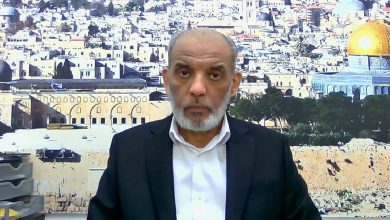Before the first week following the departure of Ismail Haniyeh as the head of the political bureau of the Islamic Resistance Movement (Hamas) came to an end, media outlets reported that Yahya Sinwar had been chosen as the new head of the political bureau, succeeding Haniyeh.
Sinwar, who replaced the martyred Haniyeh, is a new name at the helm of Hamas. He harbors no goodwill towards Israel, and security and political circles, as well as settlers, view him with unease. Tel Aviv considers him the most dangerous man in the region.
Sinwar, well-acquainted with Israel and vice versa, takes over the political bureau leadership from the field, despite being one of the most wanted by Israel, which mobilizes all its financial, military, intelligence capabilities, and international support against him.
The Fourth Leader: Implications and Messages
Sinwar becomes the fourth leader of Hamas to assume this position, following Mousa Abu Marzouk, Khaled Meshaal, and the martyred Ismail Haniyeh.
The notable aspect of this selection is that it required a fraction of the time and effort that other political parties and forces in the Arab world, or even in Israel, typically spend. In Israel, political leaders often engage in intense conflicts when the door for political rotation or succession opens.
The widespread celebration among Muslims and Arabs, and the rapid popular response on social media to Sinwar’s selection, sends strong and impactful messages to Israel, which will not be taken lightly by Israeli decision-makers. Some of these messages include:
- Strong Response to Israeli Aggression: Sinwar is considered a “hawk” within Hamas, known for his extreme stance towards the occupation and his resilience and toughness, as described by Israeli media and security circles that have closely followed him during his years of imprisonment.
- Message of Consensus: Hamas confirmed that the decision to appoint Sinwar as the political bureau chief after Haniyeh was made unanimously. This contradicts Israeli hopes of causing a rift among Hamas leaders, particularly those most aggravating to Israel. It indicates that Tel Aviv’s attempts to sow discord have backfired.
- Continuity of the Al-Aqsa Flood Symbolism: Sinwar is closely associated with the Al-Aqsa Flood and represents Israel’s failures in its ongoing claims to eliminate Hamas leaders. This suggests that Hamas is committed to continuing its military confrontation, even ten months into the ongoing war on the Gaza Strip.
- Return of Political Affairs to the Field: After being in the hands of the leadership group abroad for many years, this shift signifies that the current priority is the field and military confrontation, alongside a negotiation path that appears blocked due to Netanyahu’s intransigence and refusal to end the war or make any concessions.
- Elevating the Voice of the Field: The assassination of the martyred Ismail Haniyeh undermined many negotiation opportunities available to intermediaries. With Sinwar’s leadership, the focus has shifted more towards field operations and missile strikes, despite the negotiation team remaining the same as under Haniyeh, according to Hamas representative in Lebanon, Osama Hamdan.
With Sinwar’s rise to the political bureau leadership, having previously led Gaza, the most powerful and significant sector of Hamas, and as the main planner of the Al-Aqsa Flood, Israel’s hopes for a quick defeat of the Gaza Strip seem more distant. Each assassination of a leader amplifies Gaza’s anger and generates more paths and plans for retaliation.



